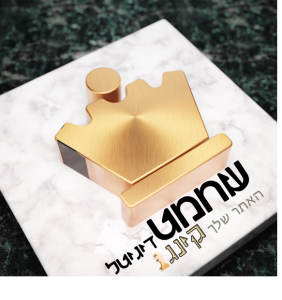Parshat Beshalach -“A wise choice.”
“Moshe took the bones of Yosef with him…” (Exodus 13:19)
The Midrash relates that while Bnei Yisrael [Israelites] were preoccupied with obtaining the wealth of the Egyptians before leaving Egypt, Moshe was busy searching for the coffin of Yosef in order to ensure that his remains be transported to Eretz Yisrael for burial, thereby fulfilling the oath that Yosef that Yosef had extracted from Klal Yisrael that they would remove his remains from Egypt when they left and take them with them.
The Midrash continues that the verse in the book of Proverbs “Chacham lev yikach mitzvot” – “The wise hearted take (for themselves) the mitzvot” refers to Moshe/
The implication of the Midrash is that Moshe concerned himself with the performance of mitzvot while the rest of Bnei Yisrael were self-indulgent, occupying themselves with satisfying their own wants:
“Come see how beloved mitzvot were to Moshe, for when the Bnei Yisrael were involved in demanding spoils from their former Egyptian slave masters, Moshe involved himself in collecting the bones of Yosef [for burial in Eretz Yisrael]”.
In the previous Parsha, Bo, Hashem requested Moshe to urge Bnei Yisrael to take the valuables of the Egyptians prior to departing Egypt so that our Patriarch Avraham would not complain that Hashem had not fulfilled his promise [to Avraham ] that his descendents would leave Egypt with “rechush gadol” – many possessions. Thus, in taking the Egyptians’ valuables Bnei Yisrael were fulfilling the commandment of Hashem.
This Midrash deserves explanation: Why does the Midrash not view the actions of the Israelites demanding the spoils from Egypt as the performance of a mitzva? Why is Moshe described as “chacham” – “wise” for performing a mitzva. Should we not expect to find the appellation “tzadik” – “righteous” as a more correct description of one who performs a mitzva? Are we to understand that without reference to this episode we would not know that Moshe Rabbeinu loved mitzvot?! Why is proof needed from the episode of Moshe gathering Yosef’s bones to establish that he loved mitzvoth? Why must the Talmud (Gemara) contrast Moshe’s behavior with that of the Israelites to prove this point? Does Moshe’s behavior not stand on its own as proof? Why can’t this good deed alone, without being contrasted with Bnei Yisrael’s gathering of the spoils, be an example of Moshe’s performance of mitzvot?
Of course Moshe Rabbeinu loved mitzvot and the Sages (Chazal) credit Moshe specifically on this occasion for his performance of Mitzvot because Moshe alone had the ability to rise to the challenge of their performance even when faced with objective difficulty to do so. When the rest of Bnei Yisrael went to loot the Egyptians, Moshe showed individuality and independent thinking. Precisely at this moment, Moshe swam against the tide and was concerned with the mitzva of collecting the bones of Yosef.
Doing mitzvot when it is socially encouraged and fits one’s schedule and needs is valuable; doing mitzvot when we have to be different from others and overcome the challenge of inconvenience is “chacham lev yikach mitzvot”. Hence, Moshe’s behavior contrasts with that of the Bnei Yisrael. Moshe Rabbenu was concerned with communal responsibility [gathering Yosef’s bones], whereas the rest of the nation engaged in the performance of their individual tasks.
Great objectivity and ability to be uninfluenced by emotions or personal prejudices is required for a person to choose to perform a mitzva which is not for his/her direct benefit over a mitzva which does. The Chacham is defined as one who learns from every man, for he has the objectivity to put aside his own perspective for those of others. Therefore in this instance “Moshe is described as “Chacham
Throughout our lives we are faced with choices that pit the benefit of others against those of our own. Each option may even qualify as a mitzva, making the choice more difficult. It is easy to rationalize our actions as appropriate if they qualify as mitzvot. However, the right choice must be concluded objectively, and not based upon our own personal agenda.

 שחמט דיגיטל
שחמט דיגיטל